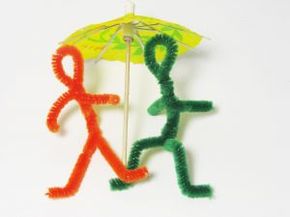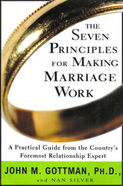
There are so many wonderful resources available out there with lots of great information. If you've ever walked into the "self-help" section of the bookstore or browsed online, it can be tough to know which books are truly useful compared to those that are mostly nonsense or fluff.
I'm sharing a list (in no particular order) of some of the books I often find myself suggestions to clients. Some are helpful workbooks with exercises that focus on a particular issue or concern (e.g., self-esteem, physical pain, memory), others explore personal issues and offer a framework for a new perspective (e.g, perfectionism, indecision, gratitude), and others are just interesting or fun to read. Enjoy!
I'm sharing a list (in no particular order) of some of the books I often find myself suggestions to clients. Some are helpful workbooks with exercises that focus on a particular issue or concern (e.g., self-esteem, physical pain, memory), others explore personal issues and offer a framework for a new perspective (e.g, perfectionism, indecision, gratitude), and others are just interesting or fun to read. Enjoy!
Emotional Wellness/Self-Esteem
The Gifts of Imperfection: Let Go of Who You Think You’re Supposed to Be and Embrace Who You Are
by Brene Brown, PhD, LCSW
The Happiness Project: Or, Why I Spent a Year Trying to Sing in the Morning, Clean My Closets, Fight Right, Read Aristotle, and Generally Have More Fun
by Gretchen Rubin
Attitudes of Gratitude: How to Give and Receive Joy Every Day of Your Life
by M.J. Ryan
The Self-Esteem Workbook
by Glenn R. Schiraldi, PhD
The Paradox of Choice: Why More Is Less
by Barry Schwartz, PhD
Relationships
The Seven Principles for Making Marriage Work: A Practical Guide from the Country's Foremost Relationship Expert
by John M. Gottman, PhD and Nan Silver
The 5 Love Languages: The Secret to Love That Lasts
by Gary D Chapman, PhD
Hold Me Tight: Seven Conversations for a Lifetime of Love
by Sue Johnson, PhD
The Book of Questions
by Gregory Stock PhD
The New Male Sexuality, Revised Edition
by Bernie Zilbergeld, PhD
Health-Related Guides
The Pain Survival Guide: How to Reclaim Your Life
by Dennis C. Turk, PhD and Frits Winter, PhD
The Relaxation and Stress Reduction Workbook
by Martha Davis, PhD, Elizabeth Robbins Eshelman, MSW, and Matthew McKay, PhD
Brainfit: 10 Minutes a Day for a Sharper Mind and Memory
by Corinne Gediman and Francis Michael Crinella PhD
The Memory Prescription: Dr. Gary Small's 14-Day Plan to Keep Your Brain and Body Young
by Gary Small, MD and Gigi Vorgan
The Gifts of Imperfection: Let Go of Who You Think You’re Supposed to Be and Embrace Who You Are
by Brene Brown, PhD, LCSW
The Happiness Project: Or, Why I Spent a Year Trying to Sing in the Morning, Clean My Closets, Fight Right, Read Aristotle, and Generally Have More Fun
by Gretchen Rubin
Attitudes of Gratitude: How to Give and Receive Joy Every Day of Your Life
by M.J. Ryan
The Self-Esteem Workbook
by Glenn R. Schiraldi, PhD
The Paradox of Choice: Why More Is Less
by Barry Schwartz, PhD
Relationships
The Seven Principles for Making Marriage Work: A Practical Guide from the Country's Foremost Relationship Expert
by John M. Gottman, PhD and Nan Silver
The 5 Love Languages: The Secret to Love That Lasts
by Gary D Chapman, PhD
Hold Me Tight: Seven Conversations for a Lifetime of Love
by Sue Johnson, PhD
The Book of Questions
by Gregory Stock PhD
The New Male Sexuality, Revised Edition
by Bernie Zilbergeld, PhD
Health-Related Guides
The Pain Survival Guide: How to Reclaim Your Life
by Dennis C. Turk, PhD and Frits Winter, PhD
The Relaxation and Stress Reduction Workbook
by Martha Davis, PhD, Elizabeth Robbins Eshelman, MSW, and Matthew McKay, PhD
Brainfit: 10 Minutes a Day for a Sharper Mind and Memory
by Corinne Gediman and Francis Michael Crinella PhD
The Memory Prescription: Dr. Gary Small's 14-Day Plan to Keep Your Brain and Body Young
by Gary Small, MD and Gigi Vorgan





 RSS Feed
RSS Feed
